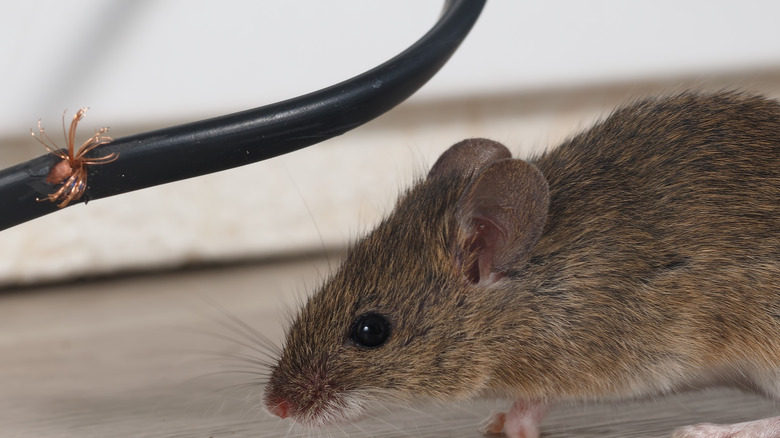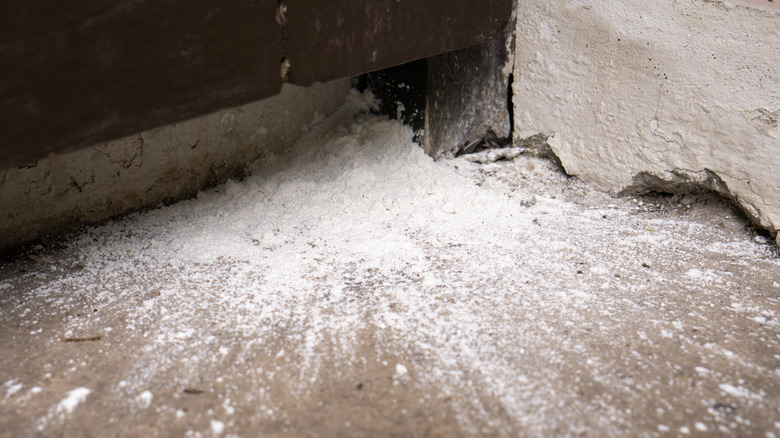Don't Waste Your Time Trying This Pest Control Method To Get Rid Of Mice
Treating a mice infestation in your home can cost anywhere from tens of dollars up to around $350, per MarketWatch, making it a costly intervention. While you may prefer alternative methods to fight these rodents, such as boric acid, it is not the best option. As it turns out, boric acid is ineffective against mice, meaning that it won't help to solve your pest woes anytime soon. Of course, this makes this mice "pest control" method a complete waste of time and money (if you spent any on the product for this specific purpose).
So, if you were thinking of applying this product around your home, you may want to think twice. After all, there's no point in using a product that doesn't work. But what is it that makes this method so ineffective? As it turns out, it all boils down to the effect that the product has on the mice.
Mice can eat boric acid with no problems
While boric acid is typically known for its pest-zapping capabilities, it isn't actually effective on live mice. If mice consume the product (and that's if they even do), it has little to no effect on them in terms of killing them, despite being effective on other types of pests. However, the chances of the mice even consuming or going near the product is also quite low, as they can't smell it due to the product having no scent. Therefore, they aren't very likely to consume it. As a result of these two factors, using this product won't help you in any way to get rid of mice in your home.
And while boric acid won't rid you of existing mice, there is some research that suggests the product does have a negative impact on pregnant mice, potentially killing off mice fetuses, per a 1994 article in Environmental Health Perspectives. Further, this same journal notes that boric acid may lead to "testicular atrophy" in male mice.
But it's the live mice you're worried about. In addition to mice, boric acid also doesn't eliminate pests such as moths, spiders, beetles and ticks, per Dodson Pest Control. Again, this is mostly due to the same reasons it doesn't work on mice. So, if you should avoid boric acid for mice, what else should you be avoiding? As it turns out, there are quite a few other common methods that aren't worth trying.
Other methods are also ineffective on mice
Alongside boric acid, other methods that may appear effective at treating the problem on the surface aren't effective at all when it comes to killing mice. Mothballs, soap, and traps are other prime examples of "mice-removal" methods that don't work, and it is best to avoid them. Speaking to Daily Express, professional pest exterminator Jordan Foster explains why this is so: "Although it may sound like the perfect, humane, safe and beautifully smelling decision, natural mice control rarely works. Mice are really smart creatures, and they learn from their environment all the time." So, instead of trying at-home DIY methods to banish mice from your home, you may be better off getting professional help. However, only you will be able to make that call based on your personal circumstances.
If you want to get rid of mice properly, you need to take a step back and think about the best course of action to solve the problem rather than trying to opt for a quick fix. On the other hand, you could always leave it if it's not that much of an issue. This depends on how many mice there are and if it's causing problems in your home. Just don't use boric acid.


